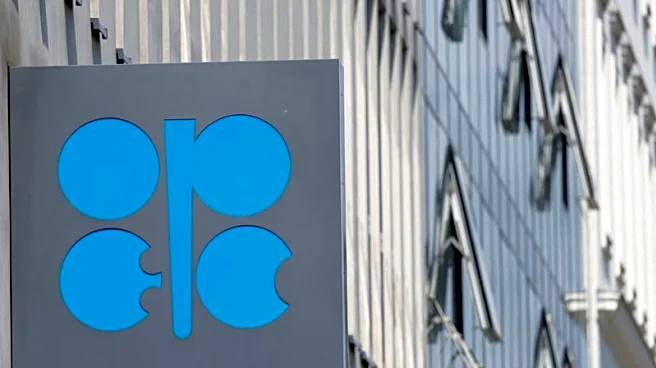By Olesya Astakhova, Ahmad Ghaddar and Alex Lawler
LONDON/MOSCOW (Reuters) -OPEC+ is set to agree on Sunday on another modest increase in oil output targets, three sources familiar with the talks said,
as the producers' group moderates plans to regain market share due to rising supply glut fears.
OPEC+ has raised output targets by more than 2.7 million barrels per day - about 2.5% of global supply - since April but slowed the pace in October and November from larger increases amid predictions of a looming oversupply.
New Western sanctions on OPEC+ member Russia are adding to challenges in the discussions as Moscow may struggle to further raise output after the United States and Great Britain imposed new measures on top producers Rosneft and Lukoil.
Eight OPEC+ members - Saudi Arabia, Russia, the United Arab Emirates, Iraq, Kuwait, Oman, Kazakhstan and Algeria - are set to agree on Sunday to increase December output targets by 137,000 barrels per day (bpd), the three sources said.
They declined to be named because they are not allowed to speak to media. A fourth source said a pause in output hikes was also possible.
Oil prices fell to a five-month low of about $60 a barrel on October 20 on concerns that a glut was building, but have since recovered to about $65 a barrel on Russian sanctions and optimism over U.S. talks with trade partners.
Analysts including RBC, Rystad, Commerzbank and SEB have said this week they expect OPEC+ to raise targets by 137,000 bpd for December.
The Sunday meeting is scheduled for 1600 GMT, the three sources said.
OPEC+ had been reducing output for several years until April and cuts had peaked in March, amounting to 5.85 million bpd in total. The cuts were made up of three elements: voluntary cuts of 2.2 million bpd, 1.65 million bpd by eight members and a further 2 million bpd by the whole group.
The group has been unwinding voluntary cuts while the last element of the cuts for the whole group is meant to stay in place until the end of 2026.
(Additional reporting by Maha El Dahan; Writing by Dmitry Zhdannikov; Editing by Hugh Lawson)










